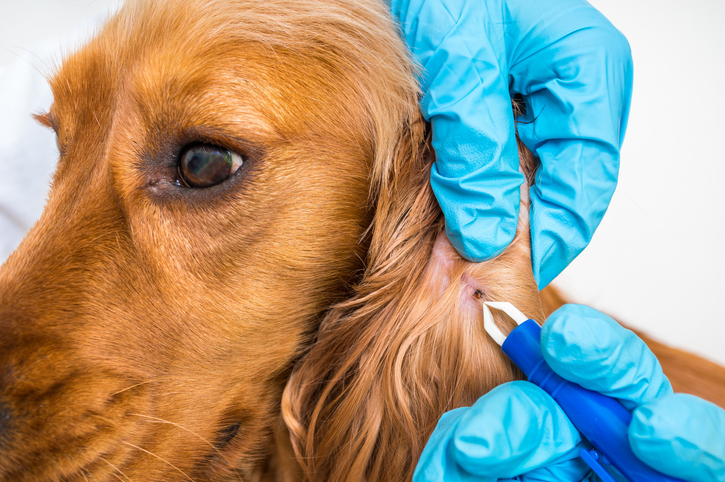A new year approaches, and it’s a very special one: 2020. It’s not only the end of another year; it’s the beginning of an entirely new decade. Because of this, many are opting in to make New Year’s resolutions more so than ever.
Just as many of us make resolutions for ourselves at the start of every year, we should also make and keep resolutions for our pets for the same reasons. Consider what we are trying to achieve for ourselves by making resolutions: we want to improve our health, happiness, safety, comfort, and to feel good about ourselves. Why not keep these goals in mind when making resolutions for your pets? Here are five New Year’s resolutions for pet owners that you can put to good use for 2020.
1. Ensure Your Pet is Eating a Nutritious, Appropriate Diet
Humans receive nutrition from milk and then graduate to solid foods with an emphasis on particular nutritional needs at various ages, and for control of health problems, too. As we age, our activity decreases and the amount of food we eat must decrease as well. Diets and nutrition for pets follow these similar patterns. Resolve to be careful about your pet’s nutritional needs and make sure you stay on track:
- Keep yourself informed about the best diet for your pet, and be prepared to alter it as your pet grows older.
- As pets age, they are often prone to diseases of old age, just as humans are. Your veterinarian can help you choose the best diet for your elderly cat, dog, or bunny.
- Diets can help control arthritis by easing joint pain and increasing joint function.
- Obesity is dangerous for any pet and can lead to arthritis, diabetes, liver disease, and heart problems. The cure for obesity is diet and exercise, just as it is for humans. Your pet will not willingly cut down on his or her food intake, and won’t willingly exercise either. It’s up to you to see that these problems are controlled and better still if you anticipate the patterns that lead to obesity.
- Avoid being led astray by myths spread by people or companies that can profit from our eagerness to give our pets whatever they need to lead long and healthy lives. If you are urged to buy, say, high protein food for your pet, check with your veterinarian first before you commit to your decision. Don’t make radical changes to your pet’s diet without professional advice.
2. Follow Age-Appropriate Health Guidelines
Pets need their owners to see that their basic health care needs are met, and these must be adjusted as pets go through different stages and as they age. Are your pet’s vaccinations up to date? Have you arranged for an annual checkup in the last 12 months? Resolve to take care of the most important concerns as soon as possible:
- Annual checkups are the key to good health and the welfare of your pet. Your veterinarian will provide a full comprehensive exam and may opt for adding some additional testing to screen for problems such as altered cell counts, liver problems, hormonal changes, kidney disease, diabetes, and many more; the physical exam includes checking for lumps, swelling and signs of pain, breathing difficulties, tooth decay, and problems associated with your pet’s age and breed.
- Our furry companions of all ages need to receive vaccinations and booster vaccinations to protect them against diseases. Your veterinarian is the best source the most current vaccination recommendations for the life stage and life style of your companion.
- Your pet is also counting on you to see that flea control and parasite protection is made available so that terrible suffering isn’t the trigger for you to remember, “Oh, right, I should have prevented that.” See to it that your pet is protected from an insect or parasite infestation before it happens, this maintains a good quality of life for them.
- There are desirable ages at which your pet should be spayed or neutered in order to live longer, happier, and healthier lives. Spayed females are spared from heat periods and are protected from uterine and mammary cancer; neutered males are spared the urge to fight, roam, mark territory, and are protected from the risk of prostate and testicular cancers. Ask your veterinarian about these procedures and when they should occur if they haven’t already.
3. Improve Safety Conditions for Your Pet
Find a veterinarian trained to care for your particular pet: dog, cat, or an exotic pet like a rabbit. Introduce yourself and your pet soon after you have adopted him or her. Pick a safety resolution from the following list that you haven’t already implemented and adopt it as soon as possible to ensure your pet’s safety.
- Start keeping phone numbers handy not only for your veterinarian, but also for an emergency animal clinic or hospital, and names and numbers for after-hours emergency help. Make sure these phone numbers are keyed into your cell phone, and addresses and routes handy if you are in a tearing hurry to locate urgent help.
- Assemble a pet first-aid kit for your home and a smaller version of the kit to take on pet outings, walks, hikes, or vacations. It should include a list of serious symptoms so that you will know how quickly you have to respond to some mishap.
- Make sure your pet has a collar with a nametag that includes your name and phone numbers, so that you can be contacted if your pet becomes lost or is injured. This is especially important for outdoor pets. An ID microchip that can be inserted painlessly by your veterinarian is a really good idea. Pet hospitals and shelters routinely check for ID chips now and the chip carries a number that identifies your pet with all the pertinent information about the owner’s name and contact numbers.
- Invest in a pet carrier and introduce it gradually. A good idea is leaving the carrier open in a common space such as a living room so your pet can roam freely in and around it. This can make) taking a trip to a hospital or a visit to a friend’s home less traumatic.
- Do a regular check of your pet’s environment, inside and outside at home and in the yard, and keep an eye out for dangers in pet parks, or any place your pet is likely to wander. Make sure poisons, toxic chemicals, cleaning supplies, electrical implements, batteries, and unsuitable foods and plants stay out of reach.
4. Engage in Regular Grooming to Make Pets Happier
We humans feel better when we pamper ourselves with luxuriously soaking in the bathtub, a visit to a steam room, a pedicure and manicure, regular brushing and washing of our hair, and taking good care of our skin. Pets are happier, too, when owners fuss over their needs, and take time to brush, stroke them and keep them well groomed. Make pet grooming a habit:
- If you are nervous about any necessary procedure for keeping your pet well-groomed, take your pet to an animal groomer for baths or nail clipping. Make sure you supply the means for your pet to keep teeth clean with chew toys if your pet doesn’t want you to brush his or her teeth or if you don’t feel comfortable about it. Eventually a dental cleaning under anesthetic may be needed if brushing is not allowed by your pet.
- Purchase a good brush and comb and make time to keep your pet’s hair or coat brushed and combed daily or as often as you can. Pets love having their owners brush their coats and massage their skin.
5. Make Time to Love Your Pets!
Pets need to feel loved just as we humans feel happier when we know we are loved. Everyone responds well to caring relationships. Make sure your pets know they are loved by taking time to play with them, and/or walk them, talk to them, massage them, groom them, and show you enjoy their companionship. Pets can become very attached to their owners and respond to them with love and attention, too. Make time for playtime.
Most of these resolutions are easy to implement. Put together a list and post it where you will have a daily reminder of your New Year’s pet resolutions. It will make 2020 a good year for you and your pets!
Creative Commons Attribution: Permission is granted to repost this article in its entirety with credit to Hastings Veterinary Hospital and a clickable link back to this page.






